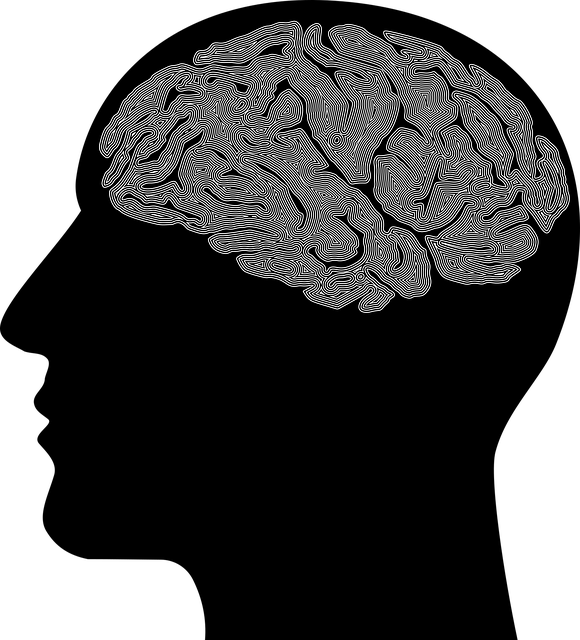In today's diverse Lakewood community, cultural sensitivity is vital for effective mental healthcare. EMDR Certified Therapists must go beyond demographics to understand and appreciate unique cultural values, beliefs, and practices, creating inclusive spaces where clients can explore their mental health without stigma. By integrating culturally informed strategies, such as adapting EMDR techniques, therapists improve therapeutic outcomes and ensure accessible care aligned with individual cultural identities. Training in cultural sensitivity enhances the effectiveness of Lakewood EMDR Certified Therapy, fostering trust and better public health responses within diverse communities.
In today’s diverse society, cultural sensitivity in mental healthcare is paramount. Understanding cultural diversity ensures effective treatment and positive therapeutic outcomes. This article explores key aspects of delivering culturally sensitive care, with a specific focus on integrating Lakewood EMDR Certified Therapy—a revolutionary approach that leverages cultural competence to address the unique needs of various patient backgrounds. We’ll delve into best practices to enhance mental health services for all.
- Understanding Cultural Diversity in Mental Health Care
- The Impact of Cultural Sensitivity on Therapeutic Outcomes
- Integrating Lakewood EMDR Certified Therapy with Cultural Competence
- Best Practices for Culturally Sensitive Mental Healthcare Provision
Understanding Cultural Diversity in Mental Health Care

In today’s diverse society, mental healthcare professionals must embrace cultural sensitivity to provide effective treatment for a wide range of clients. Understanding cultural diversity goes beyond basic demographic facts; it involves recognizing and appreciating the unique values, beliefs, and practices that shape individuals’ lives. This is particularly relevant in Lakewood, where a vibrant EMDR Certified Therapy community exists, catering to diverse populations through tailored mental wellness journaling exercises and guidance. By acknowledging cultural nuances, therapists can create safe, inclusive spaces for clients from various backgrounds to explore their mental health concerns without fear of stigma or judgment.
Mental illness stigma reduction efforts play a crucial role in fostering an environment where individuals feel empowered to seek help. Community outreach program implementations have proven effective in reaching underserved populations and providing them with the resources they need to navigate the healthcare system. Through these initiatives, therapists can actively contribute to breaking down barriers and promoting mental health awareness within diverse communities. This holistic approach not only enhances therapeutic outcomes but also strengthens the overall public health response to mental illness.
The Impact of Cultural Sensitivity on Therapeutic Outcomes

Cultural sensitivity is a cornerstone of effective mental healthcare, significantly influencing therapeutic outcomes. In a diverse society like Lakewood, where individuals from various ethnic and cultural backgrounds coexist, understanding and respecting these differences can create a safer and more welcoming environment for therapy. When therapists demonstrate cultural sensitivity, they foster trust and open communication, encouraging clients to share their unique perspectives and experiences. This, in turn, enables a deeper exploration of issues and promotes more tailored treatment plans that resonate with the client’s cultural identity.
For instance, EMDR (Eye Movement Desensitization and Reprocessing) therapy, a highly effective approach for treating trauma, can be enhanced by incorporating culturally informed strategies. Lakewood EMDR certified therapists who are attuned to their clients’ cultural backgrounds can tailor this powerful technique to suit individual needs. By integrating positive thinking and communication strategies that resonate with the client’s community outreach program implementation, therapists can facilitate healing while respecting and preserving cultural nuances. This holistic approach not only improves therapeutic outcomes but also ensures that mental healthcare remains accessible and culturally responsive for all.
Integrating Lakewood EMDR Certified Therapy with Cultural Competence

Integrating Lakewood EMDR Certified Therapy with Cultural Competence is a powerful approach to enhancing mental wellness among diverse populations. This therapeutic method, recognized for its effectiveness in treating trauma and stress-related disorders, aligns perfectly with the principles of cultural sensitivity in mental healthcare practice. By combining these two elements, practitioners can create a safe and inclusive environment for individuals from various cultural backgrounds, ensuring that therapy resonates with their unique experiences and perspectives.
The Lakewood EMDR Certified Therapy approach emphasizes understanding and respecting cultural differences, which is crucial when addressing mental health concerns. Cultural sensitivity training equips therapists with the knowledge to adapt their practices, making them more accessible and effective. This adaptation involves learning about different cultural beliefs, values, and communication styles, allowing for a more nuanced approach to stress management workshops organized by mental wellness advocates. As a result, clients from diverse communities can receive tailored support, fostering better outcomes and building trust in the therapeutic process.
Best Practices for Culturally Sensitive Mental Healthcare Provision

Providing mental healthcare that is culturally sensitive requires a deep understanding and respect for diverse cultural backgrounds and beliefs. At its core, this approach emphasizes emotional intelligence and compassion cultivation practices. Therapists should strive to create an environment where clients feel seen, heard, and understood, regardless of their cultural identity. This might involve learning about different cultural norms, values, and communication styles, adapting therapeutic techniques accordingly, and ensuring that all interventions are culturally appropriate.
For instance, a Lakewood EMDR Certified Therapist can utilize specific tools and strategies tailored to address the unique needs of clients from diverse communities. Public awareness campaigns development can play a pivotal role in fostering cultural sensitivity by educating both professionals and the general public about mental health issues within different cultures. By integrating these practices, mental healthcare providers can offer more effective and inclusive support, ultimately enhancing the accessibility and quality of care for all individuals seeking treatment.
Cultural sensitivity in mental healthcare is no longer a consideration, but an essential practice. By understanding and integrating cultural diversity with therapeutic techniques like Lakewood EMDR Certified Therapy, professionals can significantly improve patient outcomes. This approach ensures that care is not only effective but also respectful of individual identities and backgrounds. Adopting best practices for culturally sensitive mental healthcare provision fosters trust, enhances healing, and creates a more inclusive environment, ultimately benefiting both the provider and the patient.














